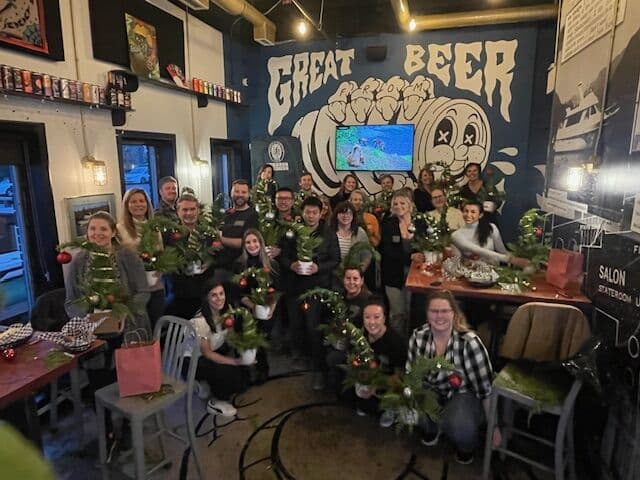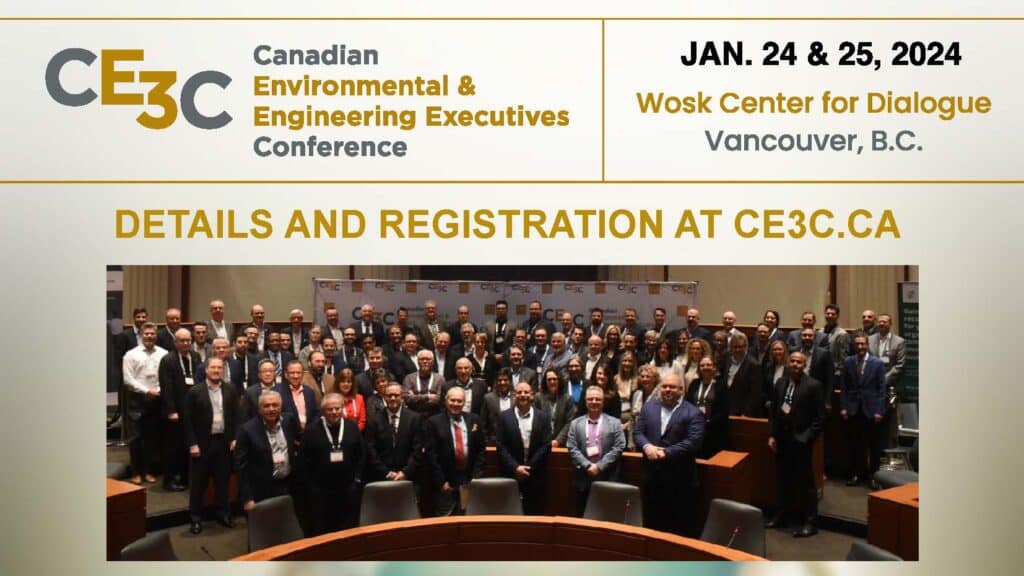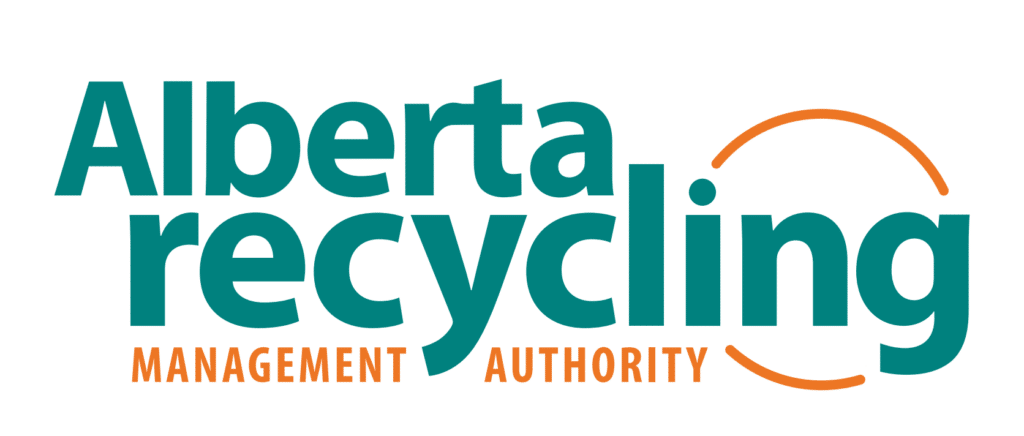🎄Its beginning to look a lot like Grinchmas! 🎄
Thank you to everyone who came out to ESAA’s First Ever Grinch Mixer. It was an absolute BLAST!
Thank you Bureau Veritas Group and SECURE ENERGY for your sponsorship. Thank you Mary at Funky Petals Edmonton and Sea Change Brewery for helping make this event so memorable.
AER Issued RCAM & Reclamation Orders to 128 Defunct Licensees
Another water release incident at Kearl oil sands project follows two earlier this year
(Source: Globe and Mail) Kearl oil sands facility is again under the scrutiny of the Alberta Energy Regulator after hundreds of thousands of litres of water from a settling pond poured into the Muskeg River.
The most recent incident at Kearl happened on Nov. 13, following two other incidents early this year.
Settling ponds are a common feature of oil sands projects. They capture surface water runoff to let contaminants settle before the water can be released. In this case, the total suspended solids in the water that escaped reached around 140 milligrams per litre – more than four times the legal limit of 30 mg/l set by the AER.
Approximately 670 cubic metres of water was released into the Muskeg River, according to the regulator, or around 670,000 litres.
This most recent incident will have less environmental impact than the previous two, which led the AER to issue Imperial a non-compliance order and an environmental protection order.
In the first incident, water tainted with dangerous levels of arsenic, dissolved metals and hydrocarbons seeped from tailings ponds for more than a year into muskeg, public lands and waterways that are home to wildlife and fish. Then, in February, a drainage pond – which collects industrial wastewater laced with pollutants from the surface of the site – overflowed, spilling an estimated 5.3 million litres into the environment.
The federal government, local Indigenous communities and the public at large were not informed of the first incident at Kearl until after the February spill. As a result, Imperial executives were called to Ottawa to testify before the House of Commons environment committee, to explain how the company handled the problem.
The release from an oil sands settlement pond isn’t the first this year, either.
In April, almost six million litres of water with more than twice the legal limit of suspended solids escaped from a pond at Suncor Energy Inc.’s Fort Hills oil sands project into the Athabasca River watershed.
Imperial spokeswoman Lisa Schmidt said in an interview Tuesday that the incident at Kearl last week was caused by erosion of a culvert.
The water itself was already treated and ready for release, she said, but soil got into it when the culvert eroded, sending it into a channel that leads to the Muskeg River.
Ms. Schmidt said the company halted pumps and stopped the flow of water as soon as workers noticed. She added that work to fix the culvert is still under way.
The AER said Imperial will conduct additional sampling to ensure that the amount of total suspended solids in the water is reduced before it begins releasing water from the pond.
Imperial has also taken water samples upstream and downstream in the Muskeg River, and at a federal government environmental protection compliance point, which measures water quality and is downstream of the culvert failure.
The AER said it would review the water quality samples to determine any potential effects to fish and fish habitat.
Fewer oilpatch companies going bust could spell relief for Alberta’s orphan well woes
(Source: CBC News) It’s yet another sign of the times for Alberta’s thriving oil and gas sector.
After several years of persistently low commodity prices driving a wave of corporate insolvencies, bankruptcy professionals in the province say it’s become increasingly rare to see these companies fail.
The financial rebound is providing relief for the province’s orphaned-well problem. Fewer companies becoming insolvent means fewer companies abandoning their assets, which can become environmental and safety hazards.
When a single company fails, it can result in thousands of oil and gas wells, in addition to hundreds of facilities and pipelines, that no longer have an owner. If those wells and other assets can’t be sold, they need to be cleaned up.
“If we’re not having receiverships, the number of orphans go down dramatically,” said Lars DePauw, executive director of the Orphan Well Association, an industry-funded organization.
It costs around $35,000 on average to decommission a well and $24,000 on average to reclaim a site, it says, with costs varying depending on the size, age and complexity of the well.
The organization currently has an inventory of 1,987 orphan wells for decommissioning.
The trend is a tricky one to quantify. The federal Office of the Superintendent of Bankruptcy tracks bankruptcies and proposals, but these are often less common in the oil and gas sector than receiverships and filings under the Companies’ Creditors Arrangement Act.
A decommissioned pumpjack is shown at a well head on an oil and gas installation near Cremona, Alta., in 2016. (Jeff McIntosh/The Canadian Press)
Multiple insolvency lawyers and professionals who spoke to CBC News all pointed to the same trend: a decline in oil and gas insolvencies, largely driven by high commodity prices.
It’s a significant change from an era that began in 2014, when a downturn in the oilpatch drove a wave of insolvencies and a rise in orphaned wells. The situation peaked in 2018, DePauw said, but even in subsequent years, many companies were struggling.
“Before this turn of fortune for the oil and gas companies, we were babysitting a number of oil and gas companies trying to stave off foreclosure,” said Josef Kruger, a longtime Calgary insolvency lawyer with the firm Borden Ladner Gervais LLP.
“A lot of these companies were not going to survive. Then came the Ukraine war and things changed completely.”
The resulting uptick in commodity prices has led to recent record-breaking profits, which companies have used to return money to shareholders and pay down debts at a breakneck pace.
“There’s a real mind shift with a lot of the executives we talk to … ‘We do not want to employ nearly as much debt as we … once had,'” said Jeremy McCrea, managing director of energy research with the firm Raymond James.
Beyond the financial factors in the decline in insolvencies, another driver is that there are simply fewer companies out there to become insolvent, period.
In tough times, it tends to be the smaller companies that go belly up first. But in recent history, many junior oil and gas companies have either gone under or been scooped up by bigger players, with no new wave of juniors arriving on the scene to take their place.
“So another reason why we see less oil and gas insolvencies at this time is there just aren’t as many oil and gas companies,” said Kelsey Meyer, a partner with Bennett Jones LLP.
The end result is a leaner industry where the remaining companies are enjoying healthy profits and keeping a close eye on their spending.
“They are laughing all the way to the bank,” said Kruger.
This is how inactive and orphaned oil and gas wells in northern B.C. are cleaned and dismantled.
The decline in insolvencies is helping the Orphan Well Association pick away at the glut of orphaned wells that emerged following the 2014 downturn, and the subsequent wave of insolvencies.
“Going into this year, we’ve seen the tail end of those insolvency proceedings and the number of orphans as a result of those new insolvencies has been going down,” said DePauw.
DePauw expects recent regulatory changes will also help with the orphaned-well problem.
The industry is now required to spend a minimum amount every year on the cleanup and remediation of old wells — a figure that started at $422 million and has since grown to $700 million.
The new framework also means oil and gas producers who want licences for new wells are being looked at much more closely to ensure they can meet their cleanup and closure responsibilities. And if one company wants to transfer a well licence to another, it will trigger an assessment to ensure the receiving company can safely operate the infrastructure and do the reclamation when it’s no longer in use.
Still, DePauw said, there are companies out there who would’ve bought assets under the previous rules “that I think under the new framework they wouldn’t have been allowed to buy.”
An abandoned oil well awaiting removal. (Orphan Well Association)
“So I wouldn’t say that there’s not going to be another insolvency, but we’re optimistic that the new framework is going to have some positive results,” he said.
For now, at least, some insolvency lawyers have been left with a bit more time on their hands. They’re practising in other areas, writing articles and — in some cases — enjoying a bit of downtime.
“When things go slow … suddenly you see insolvency lawyers attending conferences where you would never have seen them in busy times,” said Kruger.
“They take the licensed insolvency trustees and the bankers to lunches, they play golf … you just have to swing with the punches.”
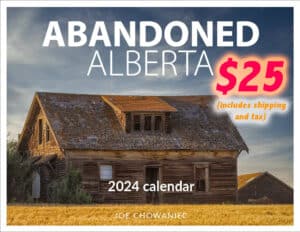 2024 Abandoned Alberta Calendars Available
2024 Abandoned Alberta Calendars Available
Ontario Strengthening Penalties for Landfill Facilities that Contravene Environmental Laws
(Source: Hazmat Magazine) The Ontario government is strengthening regulations to clamp down on landfill site owners who contravene environmental laws. The changes will allow the province to take stronger action against illegal activity by giving enforcement officials the ability to issue monetary penalties. Without this type of penalty available, the ministry must take violators to court – a lengthy and costly process that can often take years to get results.
“Our government takes environmental violations very seriously, and we are committed to holding polluters accountable,” said Andrea Khanjin, Minister of the Environment, Conservation and Parks. “By expanding environmental penalties to landfill facilities, this regulation gives us the ability to take stronger actions to protect Ontarians through swift financial consequences for breaking the law.”
The change comes in the form of an amendment to the Environmental Penalties Regulation (O. Reg. 227/07) under the Ontario Environmental Protection Act. It applies to open and closed landfilling sites with an approved capacity of 40,000 cubic metres or more.
The environmental penalties will range from $1,000 per day for less serious violations to $100,000 per day for the most serious violations. The funds collected from these penalties will be reinvested in impacted communities through the Ontario Community Environment Fund to support activities such as shoreline cleanups or tree planting.
These local projects are in addition to other actions companies may have been ordered to do to repair harm caused by a violation of environmental laws, such as taking steps to prevent discharges of contaminants, including odour, that cause an adverse effect.
“This is welcome news for people in my community who have had to endure an intolerable odour from a nearby landfill,” said Donna Skelly, MPP for Flamborough-Glanbrook. “This move will help ensure all landfills are in compliance with laws that help protect and preserve our air, land and water.”
The ministry has successfully used environmental penalties to support enforcement of violations at industrial plants that emit pollution or discharge effluent directly to land and surface waters, and petroleum facilities that discharge sulphur dioxide into the air. Over the past three years, more than 95 per cent of facilities issued penalties were able to demonstrate actions to prevent or mitigate the violation and/or for having an environmental management system in place.
Source: Ontario Government News Release
New ESAA Member
ESAA welcomes the following new member. If you are not a member of ESAA you can join now via: https://esaa.org/join-esaa/
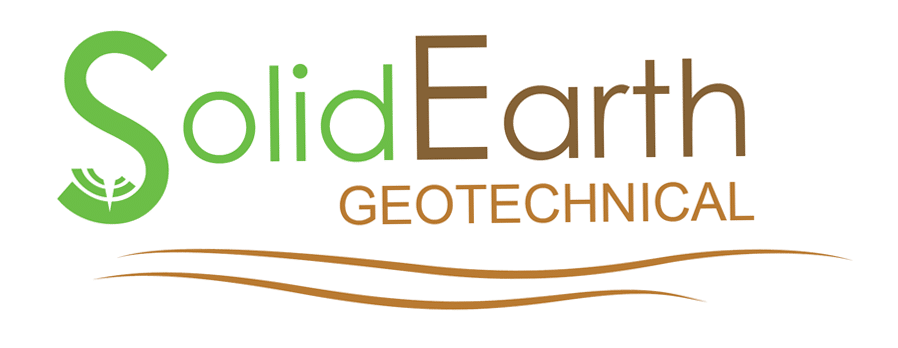
SolidEarth Geotechnical Inc
4336 – 97 Street
Edmonton, AB T6E 5R
Phone: (780) 577-1115
Hadi Fayyad, Director, Business Development
[email protected]
SolidEarth provides professional services for a wide range of disciplines including geotechnical engineering, materials engineering and testing, geo-environmental engineering, and environmental assessment, monitoring and remediation services. We provide environmental due-diligence service to businesses and investors during property sale transactions, environmental cleanup and property restoration, as well as annual compliance groundwater monitoring programs.
Upcoming Industry Events
Canadian Environmental and Engineering Executives Conference (CE3C)
January 24-25, 2024
Wosk Centre for Dialogue, Vancouver
The Canadian Environmental and Engineering Executives Conference (CE3C) was specifically created as an exclusive forum for executives at the highest level of the environmental engineering and consulting industry in Canada. Since the inaugural conference in October 2018 demand has been high for this event; Presidents, CEOs, COOs, CFOs, senior executives, and owners from across the country have attended.
The panel discussions provide a comprehensive overview of the current trends and challenges within the environmental and engineering consulting domain, strategic business development, and the evolving landscape of Human Resources, particularly in enhancing employee engagement. These sessions are designed to equip attendees with practical insights and strategies to effectively navigate the intricacies of the industry.
On the second day, the conference agenda highlights the “Keynote Forum” where notable figures, Michael Campbell and Nik Nanos, will examine the economic, political, and international factors impacting Canadian business, with a specific focus on the environmental and engineering consulting industry.
CE3C is not merely a congregation of professionals, but rather a catalyst for industry evolution, and an incredible platform for networking and collaboration. Witness the confluence of ideas, strategies, and professional camaraderie, all set against the serene backdrop of Vancouver. Join us and be part of the narrative driving the future of the Environmental and Engineering Consulting sector in Canada.
Detailed program at: https://ce3c.ca/program/.
Contact [email protected] for information or visit https://ce3c.ca/.
November 2023 Wetland Knowledge Exchange Webinar
November 27th, 2023
Cassandra Chabot-Madlung, County of Grande Prairie presents – Wetland Replacement Program: How it Started & Who Can Participate
This is a Municipal viewpoint of Alberta Environment and Protected Areas’ Wetland Replacement Program and how it came to be. Learn the basic of what the program is about, what is included, how to participate, and the requirements. Take a look at some of the County of Grande Prairie’s projects from 2020 to now and gain an understanding of project diversity and some of the unique partnerships that have occurred.
Contact: Leanne Mingo
Website Link To Register: https://events.teams.
Announcing Smart Remediation 2024: Topics & Ticket Information
The 14th annual SMART Remediation Seminar Series will consist of two in-person events: Toronto and Ottawa. Early bird registration is still open for both events from now until December 31!
Toronto: January 25, 2024
Ottawa: February 8, 2024
This year we have another great lineup of interesting talks on a wide variety of topics, including Emerging Contaminants, Excess Soils, Chlorinated Solvents and Life or Something Like It!
For more information or to register, please visit www.smartremediation.
ECO IMPACT 2024, NOW is the time to register!
ECO Canada’s annual event ECO IMPACT has been honouring the efforts of environmental professionals throughout Canada for the past 7 years. Explore environmental innovation, delve into the newest advancements in green technologies, conservation strategies, and the transformative impact of sustainable practices and celebrate the environmental initiatives and individuals’ achievements with us during the Award Ceremony.
 |
Don’t miss out on the ECO IMPACT 2024 early bird tickets ) that are only available until December 1st, 2023. Join us in Calgary and engage with industry pioneers, celebrate environmental milestones, and drive the environmental conversation forward.
Watch this video to see the success of ECO IMPACT 2023 and visit our Agenda Page to see what we have planned for 2024.
Here are the event details:
- Date: February 8th – 9th, 2024
- Location: The Westin Downtown Calgary, AB
Important information for our EP® (Environmental Professionals) members: get up to 30 PD credits for attending! Not an EP® yet? Check here to learn more about ECO Canada’s professional designations. |
|
REGISTER NOW!
Join Us for ARMA’s EPR Virtual Lunch and Learn Series!
Welcome to an exciting new endeavor by the Alberta Recycling Management Authority (ARMA) – the EPR Virtual Lunch and Learn Webinar Series!
For over 30 years, ARMA has led the way in managing Alberta’s stewardship recycling programs, covering electronics, paint, tires, and used oil materials. As we step into a new phase, we’re excited to introduce the Extended Producer Responsibility (EPR) system. This significant shift aims to transfer the responsibilities of waste collection, sorting, processing, and recycling from municipal governments and taxpayers to the producers themselves.
While EPR might be familiar to producers and suppliers, it’s a new concept for many Albertans and marks a substantial change for our communities. To help guide stakeholders through this transition, we’ve created the ARMA EPR Virtual Lunch and Learn Webinar Series. Targeted to specific audiences, this series is designed to provide opportunities to interact with our organization and expert guest speakers, keeping you updated on the latest developments and processes within the Extended Producer Responsibility (EPR) framework, while also providing a direct avenue for addressing any questions or concerns you might have.
This is your opportunity to gain valuable insights and help you progress on your journey to EPR. For your convenience, the following dates and topics have been created:
| Lunch and Learn Session Date | Topic | Who should attend? |
Nov. 9, 2023
| Session: Intro to Alberta EPR for Producer Responsibility Organizations (PROs) This is a dedicated session for PROs! In our first webinar, we introduced PROs to ARMA and EPR in Alberta including reviewing the various stakeholder groups (Community, Producers, PROs, and Processing Facilities) in our province. We also looked at the registration process for PROs. |
|
Nov. 16, 2023 | In this webinar, we will cover the foundations of EPR such as definitions and timelines. We will include how to work through the Community Registration Application Form for PPP and HSP. |
|
Dec. 13, 2023 Noon – 1 PM MST | Session: The Mechanics of EPR: Systems, Processes and Approaches In this webinar, we will delve into EPR best practices and real-life examples of EPR. |
|
Jan. 10, 2024 Noon – 1 PM MST | Session: TBA To be Determined |
|
Feb. 14, 2024 Noon – 1 PM MST | Session: TBA To be Determined |
|
Mar 13, 2024 Noon – 1 PM MST | Session: TBA To be Determined |
|
*Please be advised that these virtual webinar sessions will be recorded and available online for later viewing.
To sign up for any of these upcoming sessions, please register here.
Thank you for your ongoing support and collaboration. We understand that the transition to EPR represents a significant change for communities, and our goal is to ensure this transition is as seamless as possible. We look forward to your attendance and assistance in inspiring a future without waste for Alberta!
If you have any questions or require further information, please email us at [email protected] or call us toll-free at 1.888.999.8762 and we will be pleased to assist you.
ESAA Job Board
Check out the new improved ESAA Job Board. Members can post ads for free.
Current Listings:
- Environmental Specialist – Summit
- Regulatory Advisor – Trace Associates Inc.
- Planner, Lands –ATCO Electric
- Environmental Coordinator – Orphan Well Association


